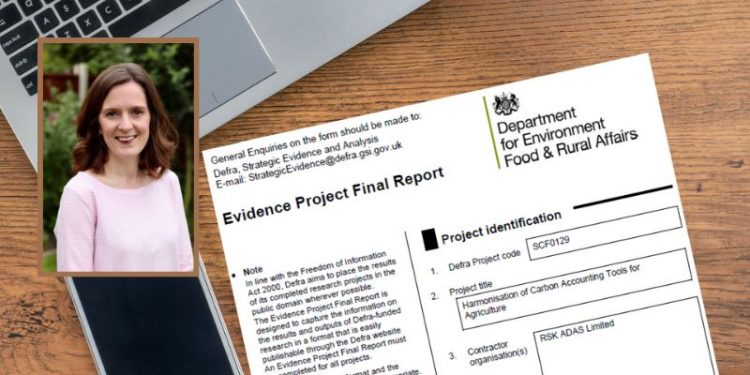Clarity and Accuracy in Carbon Reporting for the Agricultural Sector
The eagerly anticipated “Harmonization of Carbon Accounting Tools for Agriculture” paper by Defra has been released, providing much-needed clarity on acceptable carbon reporting standards. This report outlines the requirements for conducting farm-level carbon assessments and aims to increase the accuracy of the results produced by carbon computation tools.
The agriculture and food industries have long sought this clarity, and Defra’s commitment to this comprehensive report has been well-received. As part of the study, 81 global carbon calculators were analyzed, with the paper examining the six most relevant to UK farming in depth.
Dr. Emily Pope, Managing Director of Knowledge and Cooperation at Trinity AgTech, expressed optimism about the report’s impact. “Farm-level carbon accounting is currently completely unregulated, leading to significant divergence in calculation methodology and the resulting information. This reduces trust, stalls decarbonization efforts, and prevents proper recognition and reward. One of the report’s key recommendations is to adopt tools that present reliable data, in line with ISO standards 14064:2 and 14067 and the draft GHG Protocol Land Sector and Removals guidance, which supports the Science Based Targets initiative (SBTi). Businesses need to understand which standards to align with and which software meets these standards. The report identifies that there is only one calculator that aligns with the standards endorsed by Defra, denoted as calculator E. Improving profitability for farmers while delivering environmental improvements is essential,” Pope stated in a recent press release.
Certified Carbon Neutral Potatoes
Two years ago, Puffin Produce launched Root Zero, certified carbon neutral potatoes, into 200 Co-op stores across the UK. These potatoes are grown using sustainable farming practices to remove carbon dioxide, create healthy soil, and increase local biodiversity. Supermarket availability is expected to expand in the coming months.
Based on the initial footprint assessment, Puffin Produce aims to reduce the carbon intensity of Root Zero potatoes by 51% by 2030, covering emissions from the entire supply chain. The company has committed to a 1.5°C target through the Science-Based Target Initiative, aiming to reduce operational emissions by 46% by 2030.
Puffin Produce is also investing in carbon offset projects to neutralize all currently unavoidable carbon emissions. These projects include both reduction schemes that cut emissions and removal projects that absorb greenhouse gases.
While fertilizers contribute to the carbon footprint of potato production, this impact can be significantly reduced by carefully selecting the type and source of fertilizer and using it more efficiently.
Potatoes: A Low Carbon Footprint Food
Research from ‘Our World in Data’ compared 211 common and favorite foods worldwide to determine which food production results in the most and least greenhouse gases. The data, drawn from 38,700 commercially viable farms across 119 countries, showed that potatoes are among the top foods with a low carbon footprint, producing only 0.21 kg of carbon dioxide equivalents per kilo of produce.







